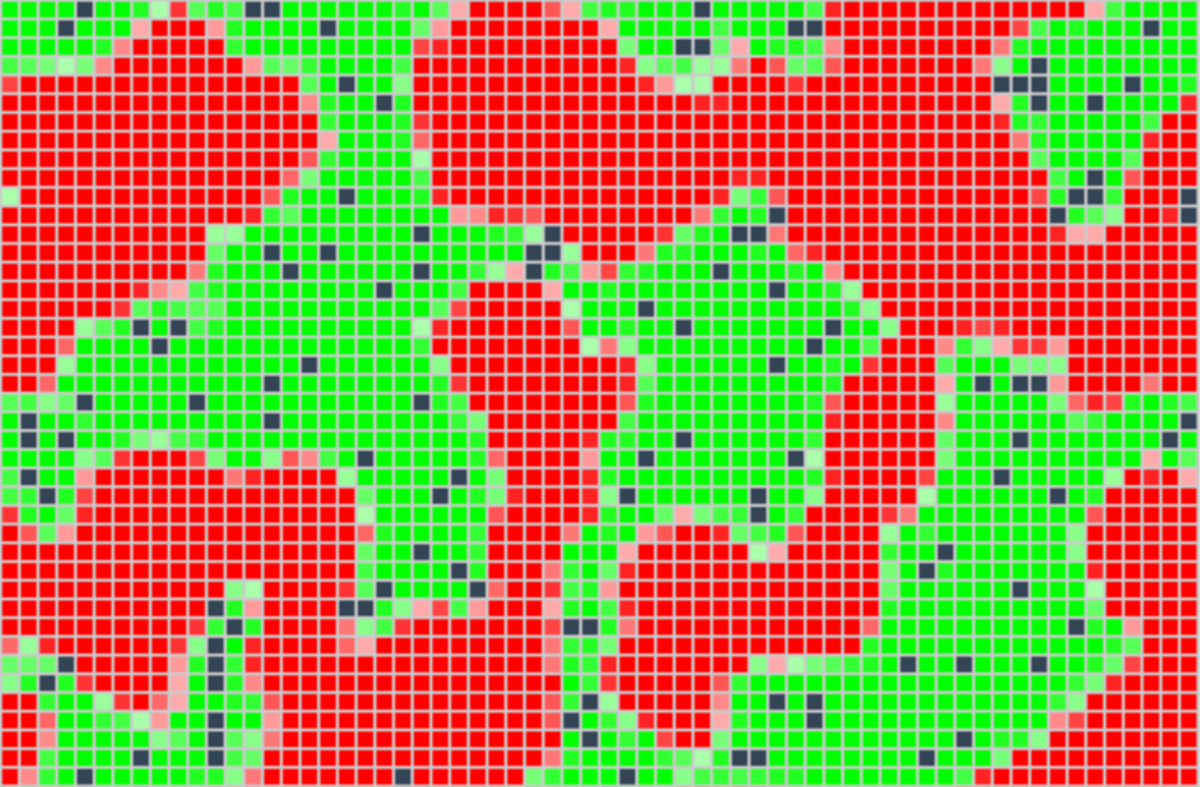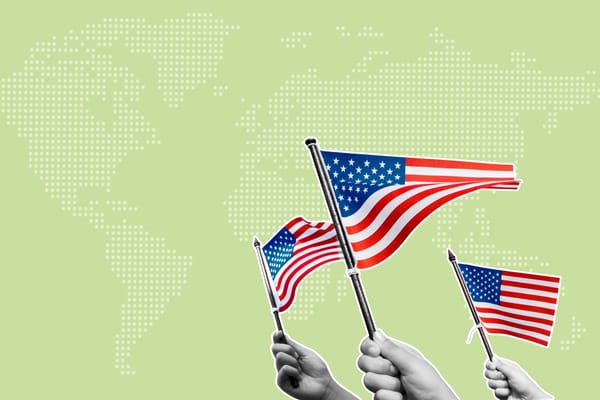So Much for the Tolerant Left: I built a computer model to convince my dad it's okay to mock Republicans

Before Tim Walz was named as Kamala Harris’s running mate, he exploded onto the memetic scene with a TV interview in which he called Republicans “weird.”
For a lot of liberal-minded people, it was a relief. I’ve been exhausted by media institutions chained to their style guides sanitizing every outrageous moment of right-wing barbarism. When I visited home this summer and got into one of our family’s traditionally passionate debates around the dinner table, I evinced my frustration, saying that newspapers weren’t covering Republicans the way they need to be covered: in a word, with disgust. My dad—a libertarian-minded career software engineer—was skeptical. So I called upon a respected historical academic to back me up: Karl Popper.
In 1945, Popper proposed a “paradox of tolerance,” which states that a tolerant society must be intolerant of intolerance to survive. He was writing a criticism of Plato’s monarchist tendencies—Plato believed a “philosopher king” could safeguard a free society better than democracy. Instead, Popper proposed that freedoms must be checked insofar as they infringe upon the freedom of others… and our tolerance should be bounded in the same fashion.
That Democrats and leftists are “intolerant” of conservative positions is a common argument by right-wing figures, so much so that it has itself become a meme: “So much for the tolerant left.” It’s a tired old playbook, and nearly 80 years ago Karl Popper gave us the instrument with which to destroy it, using facts and logic, and yes, a computer simulation.
A central tenet of libertarian philosophy is the Non-Aggression Principle, which states that initiating or threatening the use of force against an individual or property is wrong. Because such force would infringe upon another’s natural rights, this singular prohibition forms the root of a moral code, which justifies self-defense (and argues against government interventions, whether pro-social or not). Self-defense, by an individual or via the justice system, is considered necessary to preserve a free society, because otherwise a single violent person could easily subjugate a pacifist society.
‘Intolerance’ is a more abstract idea than ‘force,’ but threats of violence, real and imagined, are woven into the fabric of it, as we’ve seen this month in Springfield, Ohio. And if you were to apply the same model to a society of perfectly tolerant people invaded by one intolerant person, that intolerant person could set about making life miserable for a minority group while the tolerant majority stood by.
If you assume that ideas spread with equal virality, you might argue that eventually the intolerant person would be "infected" by the larger group's tolerance—and the intolerance would die out. In practice, I do not see this happening in societies going through a period of radicalization/polarization, as ours is. In recent years, nation-wide approval for gay marriage in the US has gone down, a worrying reversal of a trend decades in the making.
Let’s imagine a society where intolerant ideas have taken on a higher virality rate than tolerance. There’s evidence to support this idea. A 2018 study found that individuals close to online or physical communities populated by hate were more likely to produce hate content themselves. It makes sense. Intolerance is highly visible, in a way that tolerance is not. One is active, the other passive. That said, I don’t think a higher transmission rate of intolerance is necessarily a given; rather it’s a contemporary phenomenon resulting from choices made by influential people and institutions. Musk's Twitter is found to be highly preferenced to the right, and Fox News has consolidated an unprecedented level of influence over American conservatives.
Why intolerance is enjoying a period of greater virality is really besides the point. Yes, it could even have something to do with economic anxiety... but is that the root of intolerance or the fertile ground to plant it in? Hate is being weaponized for political ends—that is very clear. We cannot allow that to be normalized. Only a more viral position—that persons who preach intolerance are themselves intolerable—protects vulnerable groups and gives tolerance the room to thrive.
To defend the free market of ideas that conservatives are so fond of, we must be warrior-participants in it. We must exercise free speech to mock and condemn our opponents’ odious positions. No word should be published about Trump that does not remind the reader that he preaches intolerance, and that is counter to what makes America great. And as civilians we should demand this kind of intolerance from our journalistic institutions, from our representatives in Congress, from our peers, and yes even from our parents, if they'll listen. Americans should feel comfortable saying, "this hate has no place in America, and the GOP today is the party of hate."
Thomas Jefferson once said of political opposition, “Let them stand undisturbed as monuments of the safety with which error of opinion may be tolerated where reason is left free to combat it.” I think the key part of his quote is, "where reason is left free to combat it." Jefferson never lived during the internet age, and the broad collapse of the news media into prejudiced monopolies that followed. Conservative voters are inundated with inflammatory falsehoods. I’ll be the first to acknowledge: we need better tools to reach them. In the meantime, I’m advocating for exactly what Jefferson would have wanted: the combat of intolerance with reason. How can you combat intolerance with tolerance? We have to fight it. With reason, yes, but as Jefferson knew—it requires combat nonetheless. It is therefore reasonable to be intolerant of intolerance.
I have a theory that my parents’ generation is uniquely ill-prepared for the modern rise of fascism across the Western world. They saw the Berlin Wall come down—perhaps the greatest symbol in history of liberal principles wearing down and finally breaking an oppressive system. It is in many ways a beautiful thing: they have seen the arc of history bend towards justice and they have faith it will continue to do so.
But faith can be dangerous. It isn’t safe to tolerate intolerance, confident that it will die out like a species poorly adapted to a new ecosystem. To demonstrate this, I modeled Popper’s paradox of tolerance in Rust and WebAssembly at popperdox.net. Inspired by Conway’s Game of Life, cells spread their beliefs to adjacent cells based on number and virality. In the resulting simulations, even a few intolerant cells with higher virality required intolerance of intolerance to preserve stable regions of tolerance.
Intolerance is the dominant characteristic of the MAGA movement, and therefore of the Republican Party today. They are intolerant of immigrants—even legal ones, of trans people, drag performers, of Jews and Palestinians, of renewable energy, sex education, and books. And we’re supposed to believe the “woke mind virus” is the true contagion.
These views should not be tolerated in American society, let alone the uppermost levels of government. The bad-faith argument that liberal intolerance is equivalent to the hate spewed by the GOP should be given no more rhetorical credence than an Uno Reverse card. Right-wing intolerance may not be unusual in America—but if we are to strive for the ideals our nation was founded on, we can start by branding it ‘weird.’

